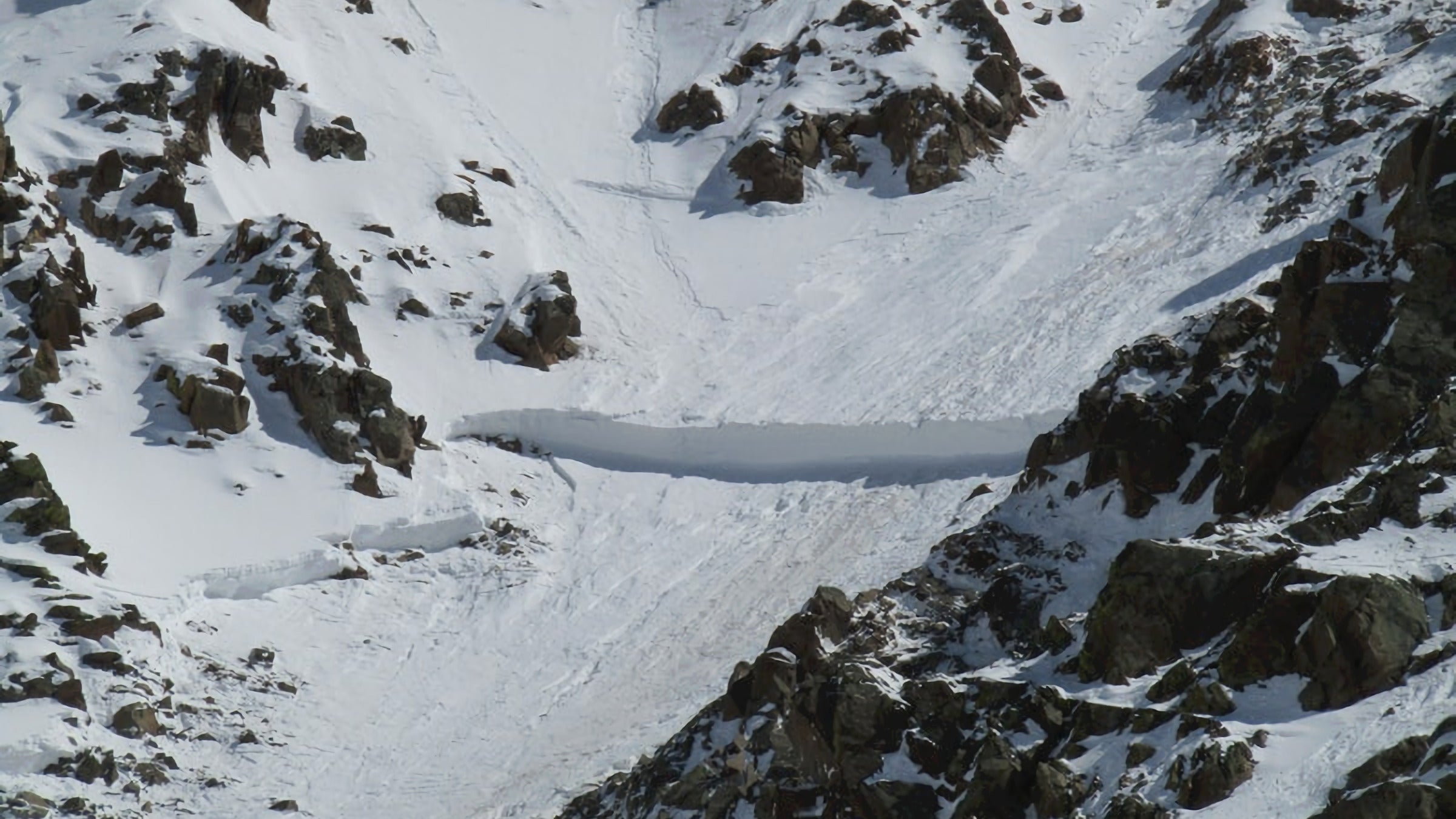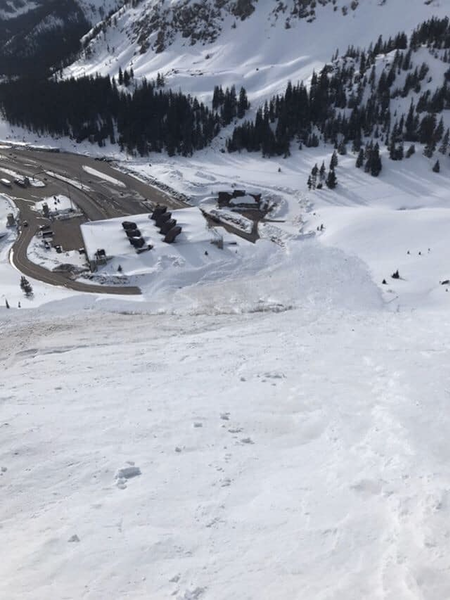Colorado Charged Two Backcountry Snowboarders With a Crime After They Reported an Avalanche. Will Riders Ever Trust the State Again?

(Photo: Courtesy CAIC)
Two backcountry snowboarders who faced criminal charges for triggering a road-covering avalanche in Colorado in 2020 reached a plea agreement with prosecutors on Tuesday. The deal put an end to an unusual case that left backcountry skiers and riders around the United States nervous and could have resulted in the defendants paying more than $100,000 in restitution.
Jason Flores-Williams, the attorney for Evan Hannibal and Tyler DeWitt, told Colorado’s Summit Daily News that the defendants reached an agreement with the state to plead guilty to charges of reckless endangerment, a third-degree misdemeanor, in exchange for prosecutors dropping a demand for $168,000 in restitution. If the plea agreement is finalized during the men’s next court appearance on June 7, they would each be required to complete between 20 and 60 hours of community service instead.
The events that occurred in the lead-up to the avalanche are largely straightforward. On March 25, 2020, Hannibal and DeWitt went for a backcountry tour in an area above the west entrance of the Eisenhower Tunnel, a 1.7-mile-long tunnel on I-70 that cuts through the Continental Divide about 58 miles west of Denver. According to the Colorado Avalanche Information Center’s report on the incident, the danger that day in the zone where the pair were riding was moderate, the second-lowest level on the five-tier avalanche danger scale. (Avalanches in similar conditions aren’t unusual; in fact, most incidents occur in moderate conditions.) After climbing up to the ridgetop, the pair dropped into a steep line.

As the pair was descending, one of them triggered a small avalanche, about 4 to 6 inches deep. The slide quickly broke into deeper layers of snow, eventually cracking the snowpack down to the ground. While neither Hannibal nor DeWitt were caught in the slide, it covered a service road near the tunnel in roughly 20 feet of snow, destroyed an expensive avalanche mitigation device designed to safely trigger slides, and nearly ran up to the expressway.
The two riders called 911 and stayed in the area to report the slide, speaking to avalanche investigators and sharing photos from the incident. Their behavior was consistent with the generally accepted (but unwritten) rules of the backcountry in Colorado, which includes sharing information to help the state’s avalanche professionals more accurately predict conditions and understand avalanche incidents. In an interview with the Associated Press in March, Hannibal said the interaction was “cordial.”
So, he and DeWitt were shocked when they received word that the Summit County District Attorney’s office was charging both of them with reckless endangerment. Prosecutors contended that the pair’s comments, both in helmet cam videos and to investigators, demonstrated they knew that they risked triggering a potentially deadly avalanche, and that they should be held liable for the property damage that had occurred.
In the wake of the charges, backcountry skiers, riders, and avalanche safety professionals expressed concern that the charges could have a chilling effect on backcountry travelers’ willingness to report avalanche incidents for fear of ending up in court. Those concerns ran as high as the Colorado Attorney General’s office, which filed a motion unsuccessfully attempting to prevent prosecutors from issuing a subpoena for the state-funded CAIC’s director and one of its avalanche forecasters to testify in the case.
In a Reddit thread dedicated to the case, some users questioned the pair’s judgement in riding a steep line over a road, while others said that the case had left them less likely to cooperate with authorities after an avalanche.”
“Well I won’t be reporting or recording anything to do with avy this next season,” one poster said. “Can’t risk $150k+ in fines.”
Hannibal and DeWitt’s trial was originally slated to start in March 2021; the judge in the case declared a mistrial and postponed it until June after too few jurors showed up to proceed.
In a statement, the CAIC avoided weighing in on the specifics of the deal, instead saying its goal throughout the case was “to ensure our ability to educate, interact with, and support the public regarding avalanche safety.”
“We will continue to help people understand and avoid avalanches,” the organization said. “We hope that everyone in Colorado has the opportunity to enjoy backcountry recreation on public lands and considers how their actions could affect other people before they go into avalanche terrain.”